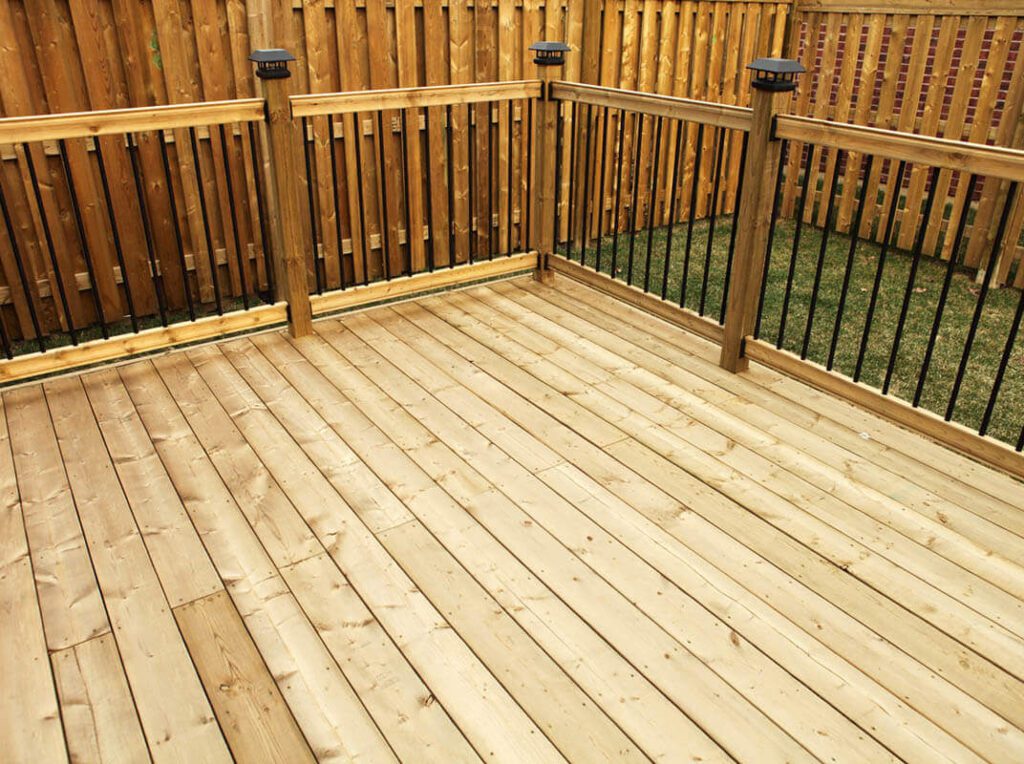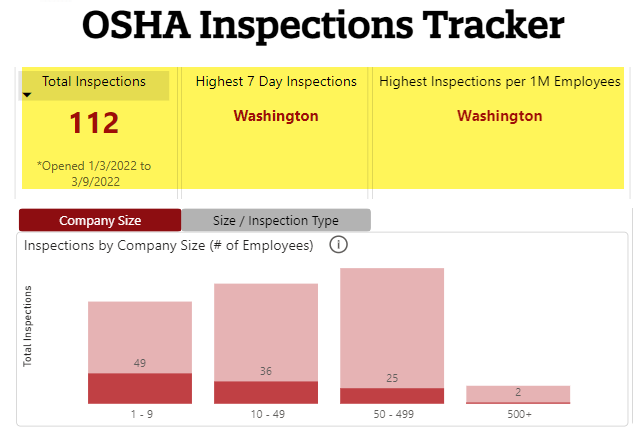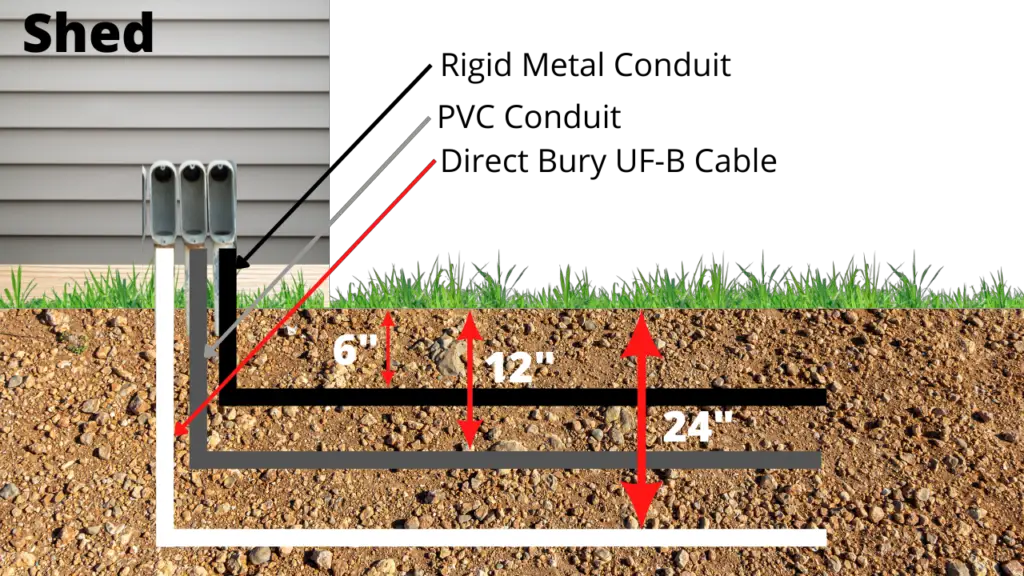If you’ve been dreaming of adding a beautiful deck to your home in Washington State, you may find yourself wondering whether you need a permit for such a project. Building a deck can enhance your outdoor living space and provide a perfect spot to relax and entertain. In this article, we will explore the regulations and requirements regarding deck permits in Washington State, ensuring that you have all the information you need to embark on your deck-building journey confidently.
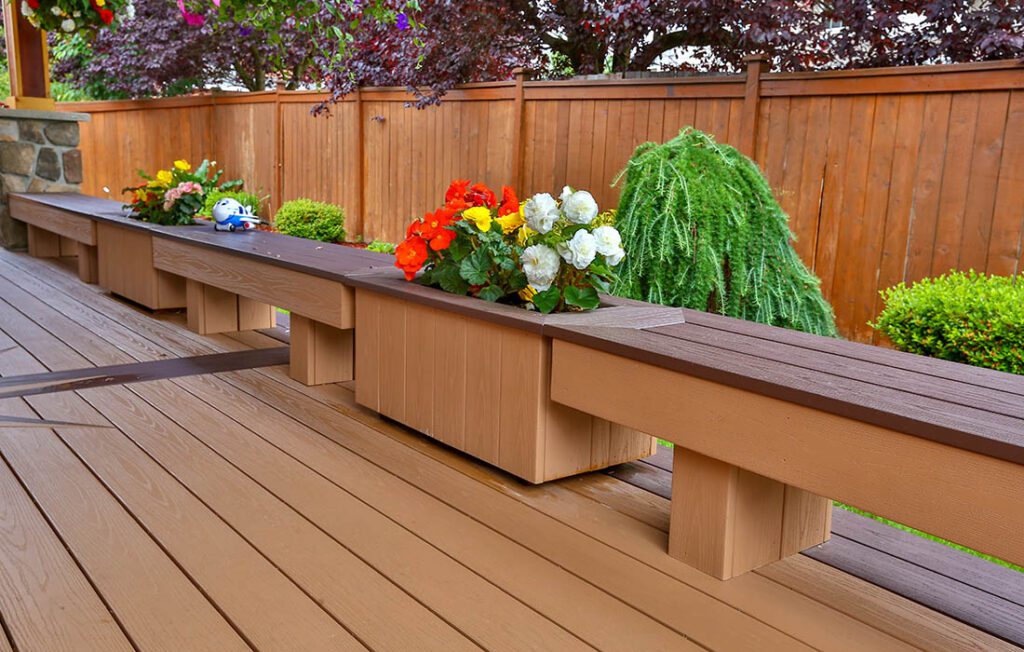

Overview
Building a deck can be a great addition to your home, providing you with extra outdoor space to enjoy and entertain. However, before you jump into the construction process, it is important to understand the regulations and requirements regarding permits. In Washington state, the rules surrounding deck construction are in place to ensure safety and compliance with building codes. This article will guide you through the process of determining if a permit is required, the steps to take when applying for a permit, and the consequences of building without one.
Definition of a Deck
Before we delve into the details, let’s start with a clear understanding of what exactly constitutes a deck. In simple terms, a deck is a platform structure that is typically built outdoors and attached to a house or other building. Decks are designed to provide a functional and aesthetic space for outdoor activities, such as dining, relaxing, and hosting gatherings. They can vary in size, shape, and complexity, ranging from a small, low-level deck to a multi-tiered structure.
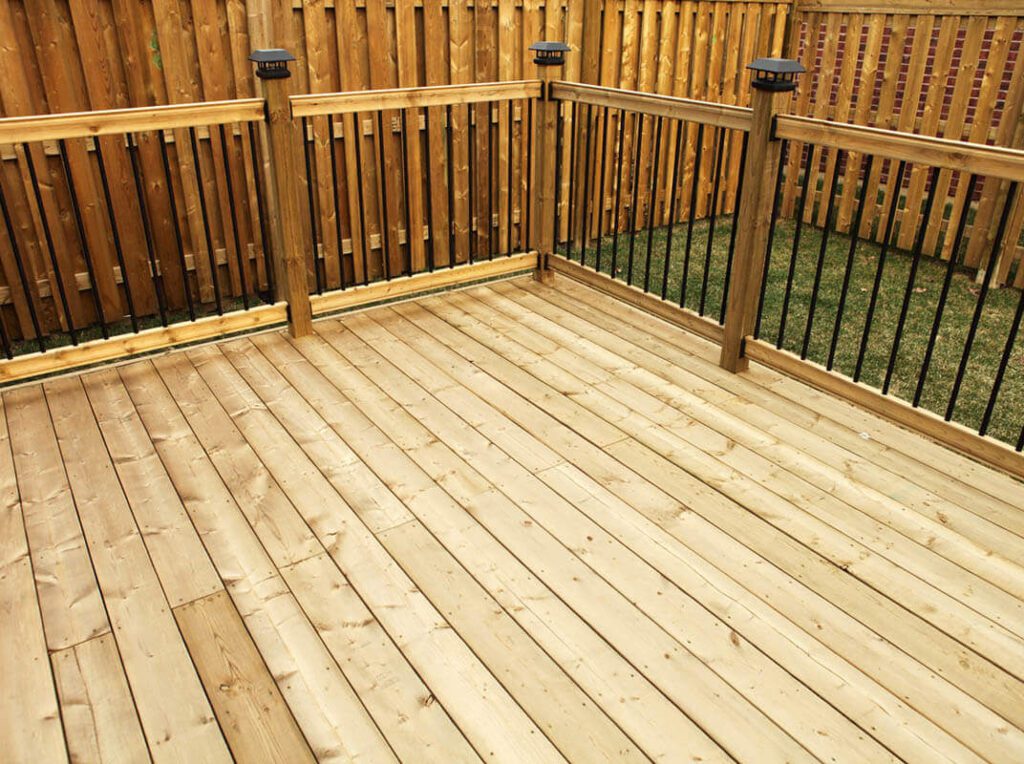

Importance of Permits
Now that we have a grasp of what a deck is, let’s explore why permits are necessary. Building permits are required for deck construction to ensure compliance with safety standards and building codes. Permits help to ensure that the deck is built to withstand environmental conditions and support the weight of the structure and its occupants. Additionally, permits serve as a way for local authorities to monitor and regulate construction, ensuring that decks are built safely and do not pose any hazards to homeowners or the surrounding community.
Penalties for Building Without a Permit
Building a deck without a permit might seem tempting, especially if you are looking to save time and money. However, it is essential to be aware of the potential consequences. In Washington state, constructing a deck without a permit is a violation of building codes and can result in hefty fines and penalties. Not only can you be required to pay significant fines, but you may also face the possibility of dismantling or modifying the deck to meet regulations. It is crucial to prioritize safety and legality by obtaining the necessary permits before proceeding with your deck project.
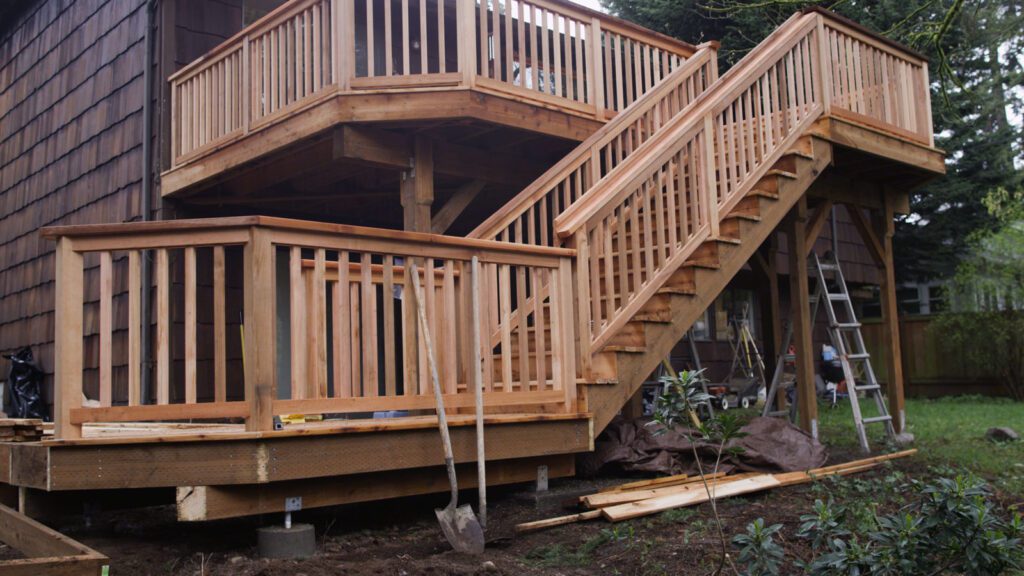

Determining if a Permit is Required
Before starting any project, it is essential to determine whether a permit is required for your specific deck construction. Several factors influence the need for a permit, including the size and height of the deck, its location, adjacent structures, and the type of deck.
Size and Height of the Deck
One of the primary factors in determining if a permit is required is the size and height of the deck. Different jurisdictions have varying thresholds, but as a general guideline, decks that are less than 30 inches above the ground may be exempt from permits. However, decks that exceed this height are likely to require a permit for construction. Additionally, if your deck is attached to the house and exceeds certain square footage, a permit will likely be necessary.
Location of the Deck
The location of your deck can also impact the need for a permit. Some areas have specific rules and regulations regarding setbacks, which are the minimum distances that a structure must be situated from property lines, buildings, or other structures. If your deck is too close to a property line, it may necessitate a permit to ensure compliance with these setback requirements.
Adjacent Structures
Another factor to consider is any adjacent structures near the location of your planned deck. If your deck is intended to be attached to an existing structure, such as your house, a permit will likely be required. This is because the structural integrity of both the deck and the attached building must be considered to ensure safety.
Type of Deck
The type of deck you plan to build can also influence the permit requirements. For example, if your deck will be freestanding or detached from any other structure, it may have different regulations than a deck that is attached to your home. It is important to consult your local building department to determine the specific requirements for your deck based on its type.
Building Codes and Regulations
To ensure that your deck construction meets all relevant codes and regulations, it is crucial to familiarize yourself with the building codes applicable in your area. In Washington state, the International Residential Code (IRC) serves as a foundation for construction regulations. However, there are also Washington State Amendments that add specific requirements for deck construction. Additionally, your local municipality or city may have its own set of regulations that you must comply with. It is essential to consult all these sources to ensure your deck is in full compliance.
International Residential Code
The IRC serves as a comprehensive standard for residential construction, including guidelines for deck construction. It specifies requirements for components such as deck footings, framing, joists, and railings. By following the IRC provisions, you can ensure that your deck is structurally sound and built to withstand environmental factors such as wind, snow, and seismic activities.
Washington State Amendments
Washington state has adopted the IRC as a base, but it has also made specific amendments to address the unique climate and geographical considerations within the state. These amendments may include additional requirements for deck construction, such as snow load calculations, specific beam and joist sizes, and design criteria for seismic activity.
Additional Local Regulations
In addition to the building codes and state amendments, your local jurisdiction may have its own set of regulations that apply to deck construction. These regulations might include specific design criteria, setback requirements, and aesthetic guidelines. It is crucial to contact your local building department to inquire about any additional regulations that must be followed when applying for your permit.
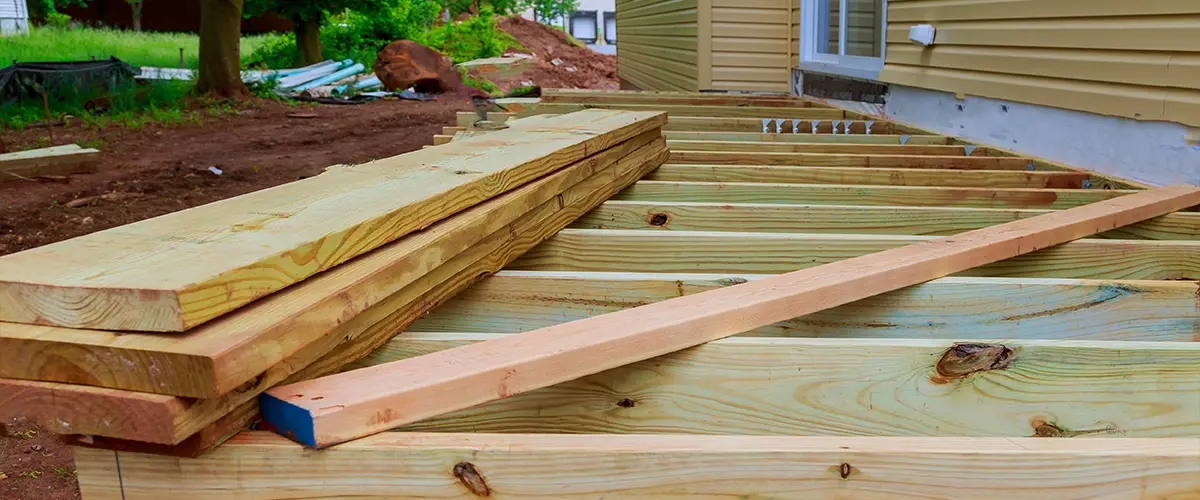

Applying for a Permit
Once you have determined that a permit is required for your deck construction, the next step is to apply for the permit. The process of obtaining a permit can vary slightly depending on your location, but here are some general steps to guide you:
Contacting the Local Building Department
Begin by contacting your local building department to inquire about the necessary steps to apply for a deck permit. They will provide you with specific information, including any forms or documents that need to be submitted. It is crucial to establish a line of communication with the building department to ensure that you have accurate and up-to-date information throughout the application process.
Required Documents
When applying for a deck permit, you will typically need to submit certain documents to support your application. These documents may include detailed construction plans, elevation drawings, site plans, and any supporting calculations that demonstrate compliance with building codes and regulations. Some jurisdictions may also require soil or geotechnical reports to assess the stability of the ground on which the deck will be built.
Inspection Process
Once your permit application has been submitted and approved, you will need to coordinate inspections with the building department throughout the construction process. Inspections ensure that your deck is being built according to the approved plans and in compliance with building codes. Common inspection points include footings, framing, electrical connections (if applicable), and the final inspection once the deck construction is complete.
Permit Fees
When applying for a permit, there will typically be associated fees that must be paid. The fees cover the cost of reviewing your application, conducting inspections, and issuing the permit. The specific cost will vary depending on your location, the size of your deck, and any additional services required. It is essential to budget for these fees when planning your deck project.
Exemptions and Special Cases
While most deck constructions require a permit, there are some exemptions and special cases where permits may not be necessary. Let’s explore a few of these scenarios:
Low-level Decks
In some jurisdictions, decks that are considered low-level or ground-level may be exempt from permit requirements. These decks are typically minimal in height, often less than 30 inches above the ground. However, it is crucial to check with your local building department to confirm if permits are required, even for low-level decks.
Repairing an Existing Deck
If you are making repairs or performing maintenance on an existing deck, you may not need a permit. This includes replacing damaged boards, railings, or stair treads. However, it is essential to ensure that your repairs do not involve structural changes or alterations that would require a permit. When in doubt, it is always best to consult your local building department to determine if a permit is necessary.
Decks for Agricultural Purposes
Decks that are specifically constructed for agricultural purposes, such as loading platforms or livestock enclosures, may have different regulations and permit requirements. Agricultural exemptions vary depending on the jurisdiction and the specific purpose of the deck. It is essential to consult with both the local building department and any agricultural authorities to determine if permits are necessary for your agricultural deck.
Decks in Historical Districts
If your property is located in a designated historical district, there may be special regulations and restrictions that apply to deck construction. These areas often have strict guidelines to preserve the architectural integrity and historical character of buildings. It is crucial to consult with both the local building department and the historical preservation office to navigate the specific requirements for your deck project.
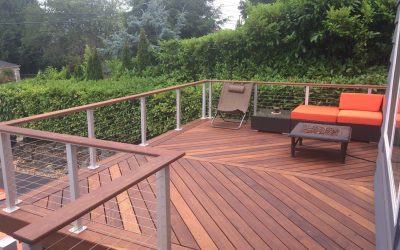

Permit Violations and Consequences
Building a deck without a permit is not only a violation of building codes but also carries consequences that can impact your wallet and your project. Let’s explore some of the potential consequences:
Consequences of Building Without a Permit
Building a deck without a permit may seem like a way to save time and money, but it can lead to significant setbacks and complications down the line. Without a permit, you risk having to remove or modify your deck to meet compliance standards, which can be time-consuming and costly. Additionally, building without a permit can void your homeowner’s insurance coverage, leaving you financially vulnerable if accidents or damages occur as a result of your deck construction.
Building Code Violations
When building without a permit, you are essentially bypassing the necessary inspections and approvals required to ensure compliance with building codes. This can lead to building code violations, which may compromise the safety and stability of your deck. Building code violations can have serious consequences, especially if accidents or injuries occur due to non-compliant construction.
Potential Fines and Penalties
In Washington state, building without a permit is a serious offense that can result in substantial fines and penalties. The specific fines will vary depending on your location and the severity of the violation. Fines can range from a few hundred dollars to several thousand dollars, depending on the circumstances. Additionally, you may be required to pay retroactive permit fees to bring your deck construction into compliance.
Hiring a Professional vs. DIY
When it comes to deck construction, you have the option of either hiring a professional or taking the DIY route. Let’s explore the benefits and considerations for both approaches:
Benefits of Hiring a Professional
Hiring a professional contractor or deck builder can offer numerous advantages. Professionals have the necessary expertise and experience to ensure that your deck is structurally sound, complies with building codes, and is built to last. They are familiar with the permit application process and can handle all the necessary paperwork, helping to streamline the process. Additionally, hiring a professional can save you time and effort, as they will handle the construction process from start to finish.
Considerations for DIY Projects
If you have the knowledge, skills, and time, a DIY deck construction project can be a rewarding endeavor. However, it is crucial to thoroughly research and understand the building codes and regulations in your area. DIY projects require careful planning and attention to detail to ensure compliance and safety. Additionally, you will need to be prepared to undertake the permit application process and coordinate inspections with the building department yourself.
Ensuring Compliance with Building Codes
Whether you decide to hire a professional or embark on a DIY project, it is crucial to ensure that your deck construction complies with all relevant building codes and regulations. This includes understanding the requirements for footings, framing, railings, and any additional components specified by the IRC, Washington State Amendments, and local regulations. Compliance with these codes will help you avoid violations, fines, and potential hazards associated with non-compliant construction.
Inspections and Certifications
Throughout the deck construction process, inspections are a critical component to ensure safety and compliance with building codes. Let’s take a closer look at inspections and certifications:
Required Inspections
As part of the permit process, you will be required to undergo inspections at various stages of your deck construction. These inspections are conducted by the local building department to verify that your project complies with the approved plans and meets all code requirements. Common inspection points include checking the stability and integrity of footings, the accuracy of framing, the installation of railings, and overall safety measures.
Deck Certification
Some jurisdictions may require deck certification, particularly for more complex or larger decks. Deck certification involves a third-party inspection by an engineer or certified professional to verify the structural integrity and safety of the deck. Certification provides an additional level of assurance that your deck meets all safety standards and can withstand environmental loads and conditions.
Ensuring Safety and Structural Integrity
By adhering to the inspection process and obtaining any necessary certifications, you are taking important steps to ensure the safety and structural integrity of your deck. Regular inspections allow for early detection of any potential issues or non-compliant construction, which can help prevent accidents or damage. Prioritizing safety throughout the construction process will provide peace of mind for you and your loved ones when enjoying your new deck.
Additional Considerations
In addition to permits, inspections, and building codes, there are a few other factors to consider when planning your deck construction project:
Homeowners Association Rules
If you live in a community with a homeowners association (HOA), it is important to review the rules and regulations regarding deck construction. Some HOAs have strict guidelines on the size, design, and materials used for decks. It is crucial to obtain any necessary approvals from the HOA before applying for your building permit.
Environmental and Land Use Restrictions
Depending on where your property is located, there may be environmental and land use restrictions that impact deck construction. These restrictions may include requirements for setbacks from water bodies, wetlands, or sensitive ecological areas. It is important to consult with the appropriate agencies or experts to ensure compliance with these restrictions and protect the surrounding environment.
Permit Processing Time
When planning your deck construction, it is important to account for the time required to obtain a permit. The processing time for permits can vary depending on the workload and efficiency of the local building department. It is wise to begin the permit application process well in advance of your desired construction start date to allow for any potential delays.
Frequently Asked Questions
To wrap up this comprehensive guide, let’s address a few frequently asked questions about building deck permits:
Can I build a deck without a permit?
In most cases, a permit is required for deck construction, particularly if it exceeds certain height, size, or attachment criteria. It is essential to check with your local building department to determine the specific requirements for permits in your area.
How long does it take to get a permit?
The permit processing time can vary depending on factors such as the workload of the local building department and the complexity of your deck construction. It is recommended to allow for several weeks to a few months to navigate the permit application process successfully.
Can I modify an existing deck without a permit?
Minor repairs and maintenance, such as replacing damaged boards or railings, may not require a permit. However, any modifications that involve structural changes or alterations may necessitate a permit. Always consult your local building department to ensure compliance with permit requirements when modifying an existing deck.
In conclusion, obtaining a permit for your deck construction project is essential to ensure compliance with safety standards, building codes, and regulations. By following the guidelines outlined in this article, you can navigate the permit process, complete construction inspections, and create a safe and enjoyable outdoor space for your home. Remember to consult your local building department for specific requirements in your area and prioritize safety throughout your deck construction journey.

